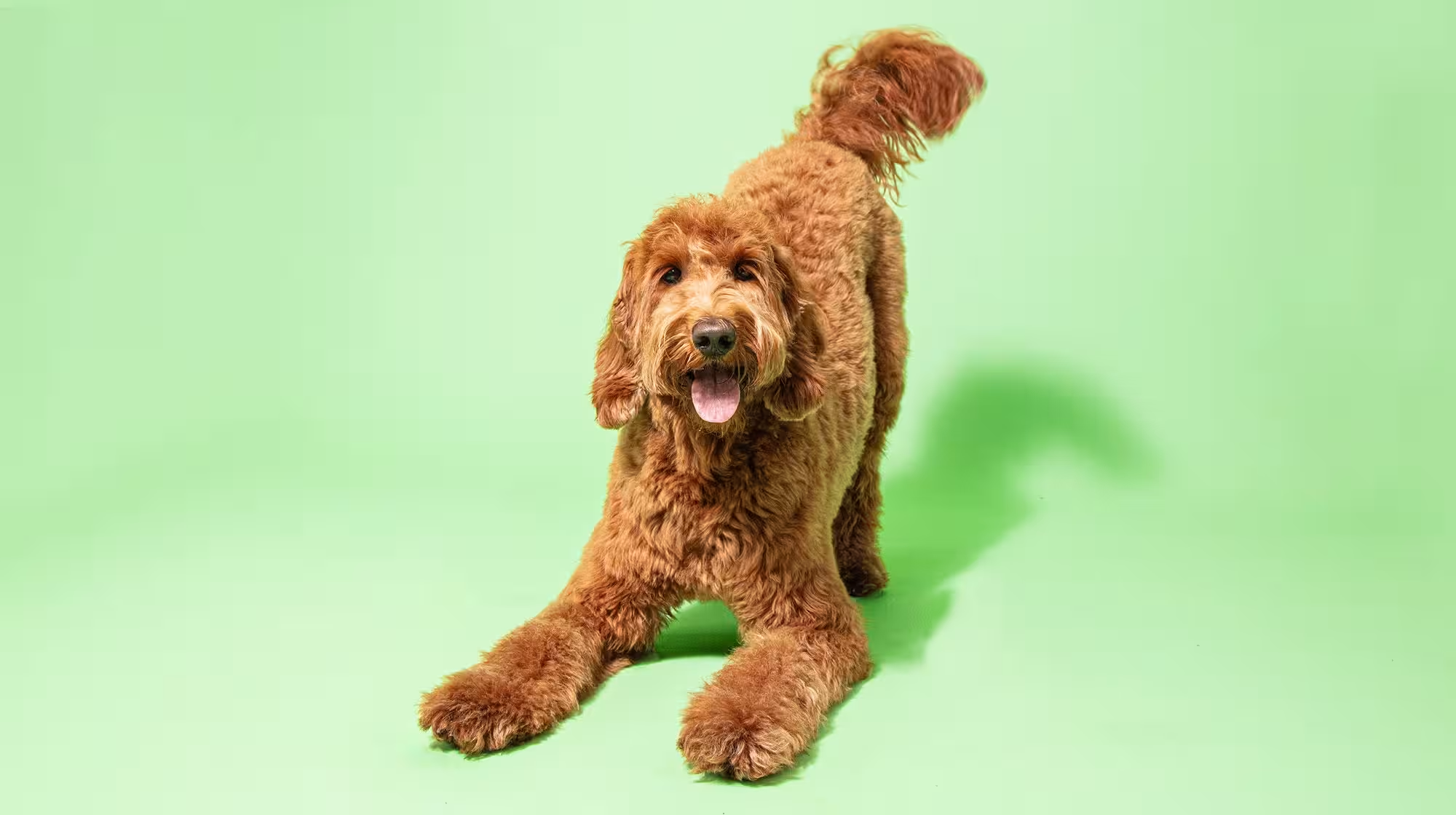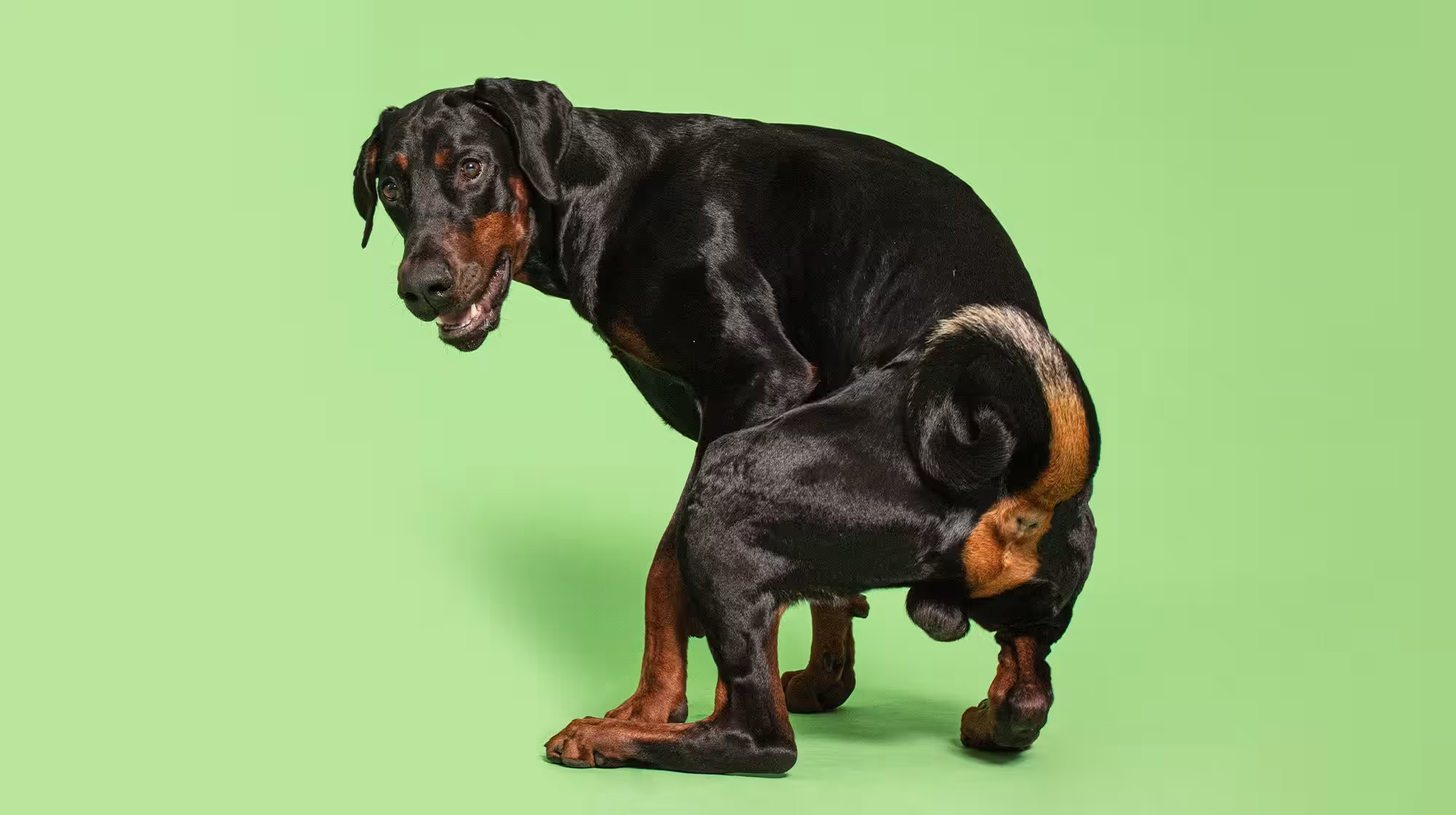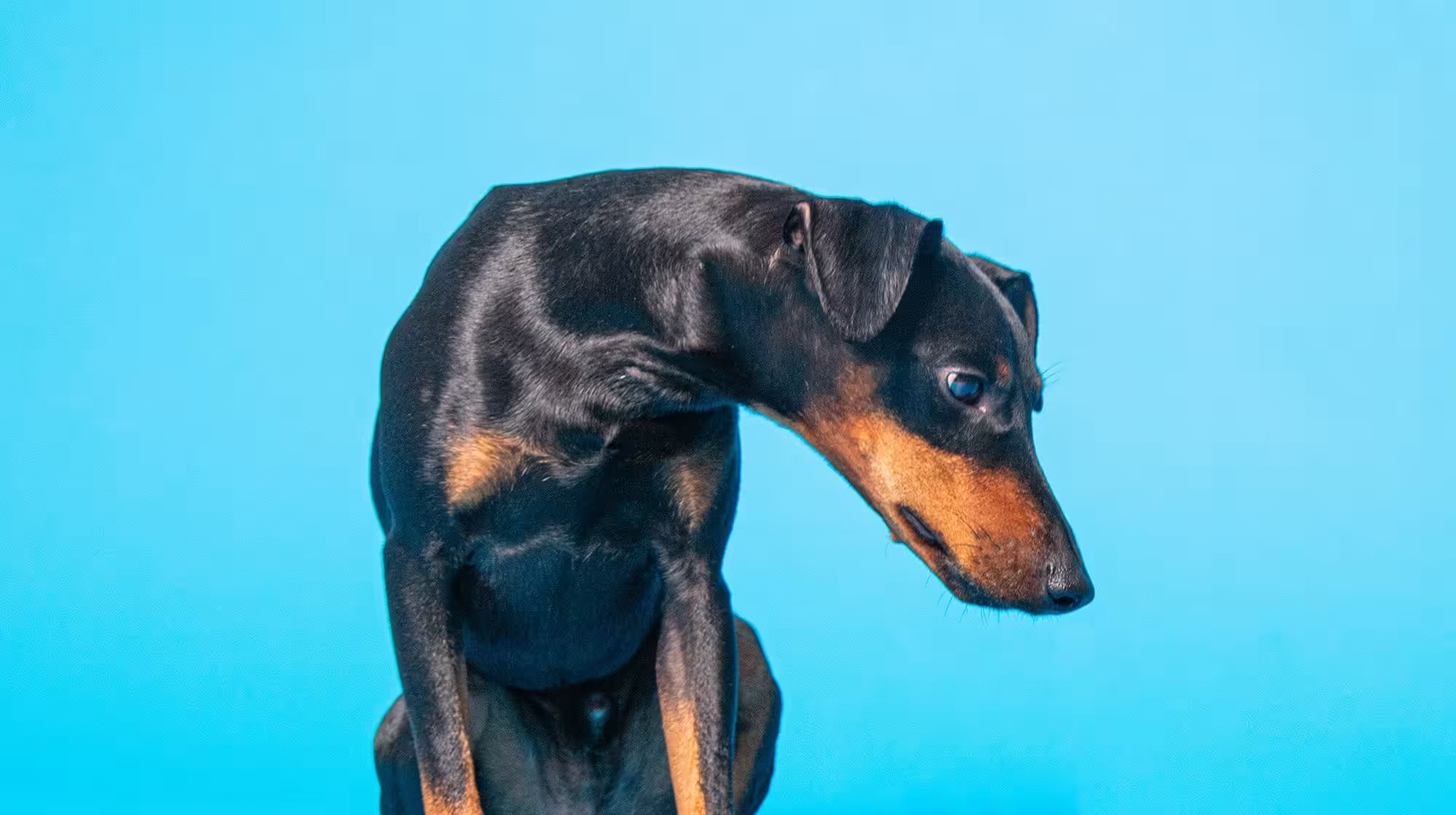In a healthy dog, frequent peeing is expected - whether they’re marking their territory, out for their morning toilet break or visiting every other lamp post on their walk. As a regular part of their routine, it can be concerning when suddenly, things don’t seem right.
When your dog’s peeing becomes unusual or irregular, that could be a warning about your dog’s urinary health.
So, when is a dog peeing too much, or not enough? What else should you look out for? In this article, we cover everything you need to know about urinary health in dogs, from indoor accidents to bladder blips.
What is urinary health in dogs?
‘Urinary health’ refers to all parts of a dog’s physical body that are linked to peeing and water waste - so kidneys, ureters, bladder, and urethra - and their health and function.
Peeing for a dog should be a natural process just like it is for us. They should pee regularly in a controlled way, without effort, and it should be completely pain-free.
If a dog’s urinary health is affected, they will likely feel pain (internally and/or when they pee), and their regular peeing routine may be disrupted or irregular.

Symptoms of urinary issues in dogs
Let’s go into more detail about the various signs that your pooch might have a urinary or bladder issue. If you recognise any of the following, you should take note and book an appointment with your vet to diagnose any underlying causes.
Peeing more often
is one of the tell-tale signs of a problem. It’s called Pollakiuria, and it might result in your pooch peeing in unusual, unexpected places, or pawing at the door to go outside when you don’t expect them to.
Frequent accidents in the house.
This is because your pooch needs to pee more often than usual and has lost the ability to hold it until they’re outside.
Squatting with no pee
. Inability to pee while feeling the need to release is one of the most uncomfortable effects of a urinary issue in dogs.
Whining while peeing
can indicate your pooch is in pain or discomfort, such as stinging.
Licking at genitals
as if they’re soothing themselves or trying to ease discomfort.
Blood in pee
is something to pay serious attention to, or you might see dried blood on your pooch’s private parts.
Change in behaviour.
If your pooch is lethargic or fidgety, or just seems out of sorts, they may be communicating discomfort.

Types of urinary problems in dogs
Lots of health issues in dogs are linked to peeing problems. Here are some examples of illnesses or conditions your pooch might receive as a diagnosis.
Urinary Tract Infection (UTI).
UTIs are common in dogs but very uncomfortable, and are caused by bacteria. Symptoms include peeing more often and/or inability to pee, stinging while peeing and indoor accidents. They’re usually treated by antibiotics.
Incontinence.
This is when your pooch can’t hold their pee and has frequent accidents. Incontinence becomes more common when dogs get older or when they’re pregnant, but it can also be a symptom of other underlying health issues. You might opt for strategically placed pee-pads around the house, or special dog nappies (common for senior dogs).
Cystitis.
When the dog constantly feels an urge to pass urine, so keeps passing drips and drops or small puddles, it could be cystitis. This is a condition caused by inflammation of the bladder. Treatment depends on what caused the cystitis initially, so chat to your vet.
Bladder stones.
These are mineral formations that develop in the bladder and can block the urinary tract. Your pooch might experience straining, blood in urine, or extreme pain when trying to pass them. Treatment varies, as it depends on the type of stones that are present.
Kidney problems.
The kidneys filter waste from liquids in your dog’s body, so if your pooch has kidney issues, they may experience excessive thirst or peeing issues. Treatment will depend on the severity of the kidney condition.
Bladder cancer.
Symptoms of bladder cancer are similar to a UTI, but thankfully, unlike a UTI, bladder cancer is rare. Your pooch’s outlook and treatment would be decided by a vet.
Prostate issues.
Mostly affecting male dogs, prostate enlargement or infections can lead to difficulty peeing or blood in the urine. Neutering can sometimes reduce the chance of prostate issues.
Do dogs get water infections?
Absolutely. Just like for us, there is a range of urinary health issues and infections that can affect dogs, so it’s important to stay alert if you think your pooch might be having trouble when trying to pee.
Urinary infections are caused by bacteria and can be associated with an underlying health issue like diabetes, dehydration or kidney disease..

Tips to improve your dog’s urinary health
As a doting pooch parent, you’ll notice abnormalities in your dog’s toilet routine - but as well as staying alert to problems, you can also take some easy preventative steps to keep urinary issues at bay.
Make sure your dog is well hydrated
Your pooch should regularly drink throughout the day.
But if they’re not great at remembering, there are lots of nifty ways you can
But if they’re not great at remembering, there are lots of nifty ways you can hydrate your dog.
Always take a water bottle on dog walks, try mixing up their regular food with some
Always take a water bottle on dog walks, try mixing up their regular food with some dog-safe broth , or feed them a few hydrating snacks such as watermelon or cucumber, as these can all add to a dog’s hydration levels and help flush out their urinary system.
, or feed them a few hydrating snacks such as watermelon or cucumber, as these can all add to a dog’s hydration levels and help flush out their urinary system.
[featured-products]
Feed them a balanced, nutritious diet
A healthy diet goes a long way in keeping a dog’s urinary system healthy - nutrients help maintain a balanced pH in the urine, and help prevent kidney stones and crystals.
A
A balanced diet for dogs , full of whole proteins and nutritious veggies, can also keep your dog lean, which can also reduce the chance of bladder problems, since overweight dogs are more prone to getting them.
, full of whole proteins and nutritious veggies, can also keep your dog lean, which can also reduce the chance of bladder problems, since overweight dogs are more prone to getting them.
What foods help support good urinary health in dogs?
Inserting dog-friendly fruits and vegetables into their diet help support gut health, urinary tract health, and promotes hydration. Blueberries and Cranberries, in particular, are known for having properties beneficial to urinary health and can help prevent infections.
Create and stick to a good toilet routine
Keeping a toilet routine is vital for a pooch. If they’re not sure when or where to pee, anxiety and stress can impact your dog’s urinary health and even induce UTIs. What’s more, a scheduled toilet routine means you’ll easily notice when your dog isn’t peeing as they usually would.
Regular grooming and cleaning
UTIs are usually caused by bacteria that can breed when your pooch hasn’t been cleaned properly.
Be sure your dog is regularly bathed and brushed, and if their coat is thick or curly, check there isn’t any fur or matting causing dirt to gather around their private parts.
Grooming appointments can help with this.
Introduce bladder-friendly supplements
Some natural supplements for dogs can help keep their bladder and urinary system healthy.
Glucosamine and chondroitin
, for instance, isn’t only great for supporting a dog’s joints and cartilage - they also help repair and support the protective layer of the bladder lining, especially useful for dogs prone to sterile cystitis.
Probiotics
, which promote healthy digestive activity and balance the flora in the gut, can also do a lot for boosting urinary health. Their urinary health, like many other areas of their body, is linked to their
Probiotics, which promote healthy digestive activity and balance the flora in the gut, can also do a lot for boosting urinary health. Their urinary health, like many other areas of their body, is linked to their gut microbiome. So it’s important to maintain a healthy, balanced gut to ensure the optimal health and function of the body.
. So it’s important to maintain a healthy, balanced gut to ensure the optimal health and function of the body.
Some dog-owners use
dog-friendly cranberry extract
to curb water infections in their pooches - but be sure to always
consult your vet
before using any
Some dog-owners use dog-friendly cranberry extract to curb water infections in their pooches - but be sure to always consult your vet before using any supplements for dogs. They can offer more advice on what’s suitable for your particular dog.
. They can offer more advice on what’s suitable for your particular dog.
Speak to your vet
Stay vigilant around your dog’s toilet habits, and check in with your vet if something seems unusual or worries you. Noticing an irregularity as soon as possible means you can stay ahead of potential health issues and get treatment quickly - so your pooch won’t be in discomfort for long and infections won’t get worse.
FAQs
[faqs]
Boost your pooch’s body and mind with a nutritious, grain-free diet packed with whole proteins, tasty veggies. Pooch & Mutt
Boost your pooch’s body and mind with a nutritious, grain-free diet packed with whole proteins, tasty veggies. Pooch & Mutt supplements for dogs and dog food with probiotics can also contribute towards a strong and healthy urinary system.
and
Boost your pooch’s body and mind with a nutritious, grain-free diet packed with whole proteins, tasty veggies. Pooch & Mutt supplements for dogs and dog food with probiotics can also contribute towards a strong and healthy urinary system.
can also contribute towards a strong and healthy urinary system.



